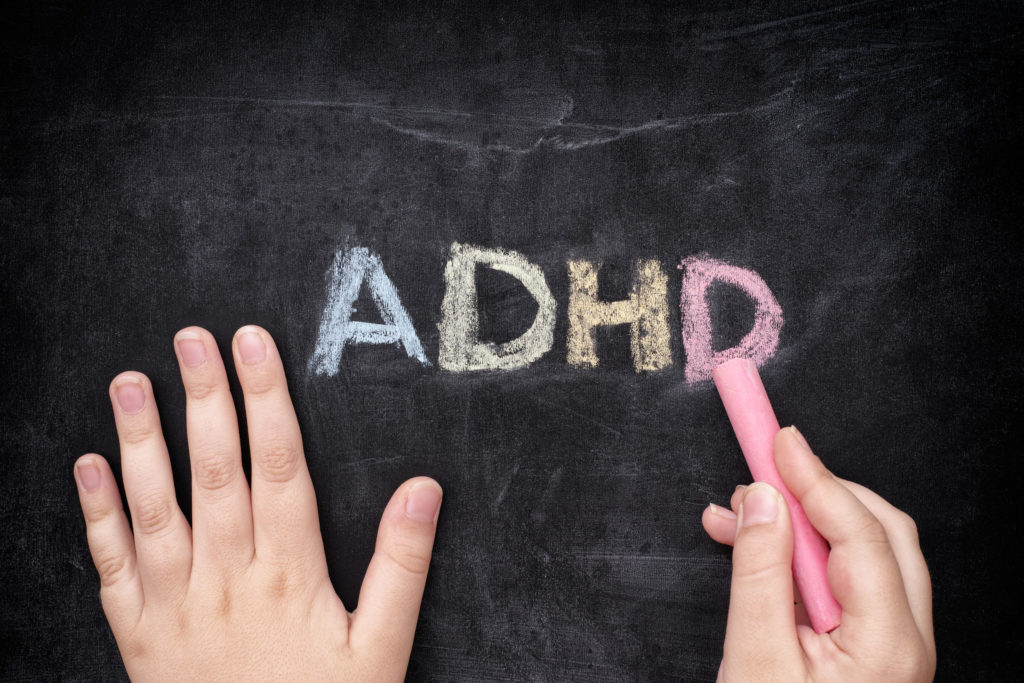ADHD four dreaded letters that all parents want to avoid

Attention Deficit Hyperactivity Disorder is defined by the American Psychiatric Association as a life-long neurodevelopmental disorder characterized by poor impulse control, hyperactivity, and inattentiveness. Beginning at about the age of 7, it impairs school activities and social interaction for roughly 6.1 million children ages 4-17. The disorder impacts children from all socioeconomic and cultural levels.
The symptoms can be any or all and varying degrees. Not all ADHD patients are alike. There are varying levels of inattentiveness as well as hyperactive and impulsive behavior. ADHD is not a Pediatric issue. The symptoms follow you throughout adulthood, sometimes to a lesser degree. As the person matures, they outgrow some of the issues and may learn methods to compensate for them. They can present as follows:
- An inability to recognize other people’s needs and desires
- Interrupting
- Impatient, trouble waiting their turn
- Emotional turmoil; tantrums, anxiety etc.
- Fidgetiness
- Problems playing quietly
- Unfinished tasks
- Lack of focus
Males are almost three times more likely to be diagnosed with ADHD than females. Symptoms can begin as early as 4 years of age and blossom as children age. The below chart shows the unfortunate fact that more and more children are being affected by the disorder.
Overall prevalence and by age group (percent)
| Year | Overall | Ages 4-11 | Ages 12-17 |
| 2015-2016 | 10.2 | 7.7 | 13.5 |
| 2013-2014 | 9.4 | 7.9 | 11.3 |
| 2011-2012 | 9.6 | 7.7 | 12.0 |
| 2009-2010 | 9.0 | 6.9 | 11.9 |
| 2007-2008 | 8.1 | 6.1 | 10.8 |
| 2005-2006 | 7.5 | 6.0 | 9.3 |
| 2003-2004 | 7.3 | 5.8 | 9.3 |
| 2001-2002 | 7.2 | 5.9 | 8.9 |
| 1999-2000 | 6.5 | 5.3 | 8.2 |
| 1997-1998 | 6.1 | 5.3 | 7.2 |
How does this relate to dentistry?
The most common dental issue that many dentists see in patients with ADHD are cavities. Studies show only 48% of children ADHD brush their teeth every morning and every evening. Additionally, medications used to manage ADHD can cause changes in diet and appetite. This can increase a child’s risk for cavities. ADHD medication can have the side effects such as dry mouth which make individuals prone to cavities.
In the dental office, treating a patient with ADHD requires knowledge of health history, medication effects, and the willingness to have flexibility in adjusting the treatment plan. Not all dental offices have awareness, and many do not want to work with patients with special needs. Special needs often require additional time. Even adult patients may have difficulty during dental visits due to anxiety or impulsivity.
Dr. Lee Lichtenstein has experience and the commitment to accommodate you and your child’s needs. Patients with additional needs may benefit from Dr. Lichtenstein’s experience with dental sedation, which is sometimes necessary if the patient needs dental work done and they do not want to cooperate with the dentist. Rather than struggle with a squirming child in an examination chair or see an adult patient wrestle with their anxiety, mild sedation will put them at ease, allow Dr. Lichtenstein to work his magic, and have better dental health without fear.
The caregiver who takes the patient to the dental visit needs to be prepared for a possibly difficult time. They themselves need to exhibit patience and allow their qualified dental professionals to take the lead. Many kids have anxiety about the dentist, and for the ADHD child, this may be at a higher level. They need a gentle but firm approach. Do not let an occasional difficult visit stop you from routine dental visits for your children.
Using a dentist with experience with ADHD will remove much of the anxiety of the parent and the child.
Dr. Lee Lichtenstein and his highly trained staff offer general dentistry services as well as dental treatments that can be performed using sedation dentistry and general anesthesia techniques to make patients’ experiences more pleasant and comfortable. They routinely work with patients of all ages who are apprehensive and nervous or come with special needs due to physical, emotional, or neurological problems.
Visit our practice to discuss your dental needs and concerns.
723 North Beers Street
Holmdel, NJ 07733.
(732) 739-3337
email us at DrLichtenstein@SleepDentistryNJ.com
